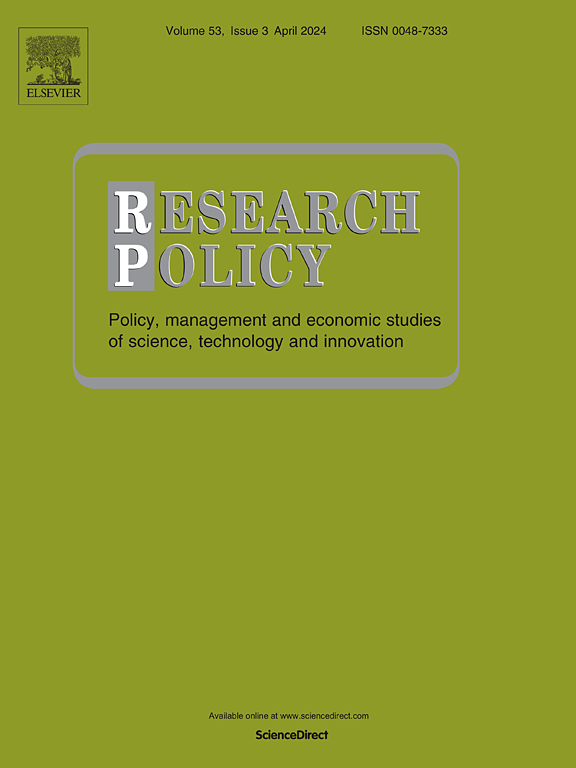Free-riding in academic co-authorship: The marginalization of research students
IF 8
1区 管理学
Q1 MANAGEMENT
引用次数: 0
Abstract
This study examines the phenomenon of free-riding in academic co-authorship, focusing particularly on scenarios involving accounting faculty and research students. Using strain theory, illegitimate opportunity theory, and power distance theory, we theoretically examine both the supply and demand sides of the free-riding phenomenon in academic co-authorship. Drawing on 54 semi-structured interviews, our findings reveal that free-riding in academic co-authorship is a widespread problem in Iran and India, though less pronounced in selected developed countries. In the Iranian and Indian contexts, the most frequently observed scenario involves faculty members free-riding from research students. In contrast, in the developed countries studied, the most prevalent scenario is faculty members free-riding from their counterparts. The study identifies meso- and macro-level inefficiencies as the primary root causes of this phenomenon in the developing countries of Iran and India. These include economic challenges, inappropriate formal and informal regulations and norms at universities, cultural issues, over-engagement of faculty in teaching, administrative duties, and non-academic work, as well as a high student-to-faculty ratio. In developed countries, where such inefficiencies are less common, the role of individual characteristics in driving this phenomenon becomes more pronounced. Nonetheless, cultural factors and faculty busyness remain important considerations even in developed countries. Moreover, many interviewees believe that free-riding behavior can be contagious and that experiencing it can lead to pessimism toward co-authorship. Most interviewees from Iran and India perceive free-riding as endemic in their countries' accounting research communities, in contrast to interviewees from developed countries. Drawing on participant insights, this study offers a range of recommendations to address and mitigate free-riding in academic co-authorship.
学术合作中的搭便车:研究生的边缘化
本研究考察了学术合作中的搭便车现象,特别关注涉及会计教师和研究生的情况。运用应变理论、不正当机会理论和权力距离理论,从理论上考察了学术合作中搭便车现象的供给和需求两个方面。根据54个半结构化访谈,我们的研究结果表明,学术合作中的搭便车现象在伊朗和印度是一个普遍存在的问题,尽管在某些发达国家不太明显。在伊朗和印度的背景下,最常见的情况是教职员工从研究生那里搭便车。相比之下,在研究的发达国家,最普遍的情况是教师搭便车。该研究指出,中观和宏观层面的效率低下是伊朗和印度等发展中国家这种现象的主要根源。这些问题包括经济挑战、大学正式和非正式的规章制度和规范不适当、文化问题、教师过度参与教学、行政职责和非学术工作,以及学生与教师的比例过高。在这种低效率不太常见的发达国家,个人特征在推动这种现象方面的作用变得更加明显。然而,即使在发达国家,文化因素和教师的忙碌仍然是重要的考虑因素。此外,许多受访者认为搭便车的行为会传染,经历这种行为会导致对合作的悲观情绪。与来自发达国家的受访者形成鲜明对比的是,大多数来自伊朗和印度的受访者认为,搭便车在他们国家的会计研究界很普遍。根据参与者的见解,本研究提出了一系列建议,以解决和减轻学术合作中的搭便车现象。
本文章由计算机程序翻译,如有差异,请以英文原文为准。
求助全文
约1分钟内获得全文
求助全文
来源期刊

Research Policy
MANAGEMENT-
CiteScore
12.80
自引率
6.90%
发文量
182
期刊介绍:
Research Policy (RP) articles explore the interaction between innovation, technology, or research, and economic, social, political, and organizational processes, both empirically and theoretically. All RP papers are expected to provide insights with implications for policy or management.
Research Policy (RP) is a multidisciplinary journal focused on analyzing, understanding, and effectively addressing the challenges posed by innovation, technology, R&D, and science. This includes activities related to knowledge creation, diffusion, acquisition, and exploitation in the form of new or improved products, processes, or services, across economic, policy, management, organizational, and environmental dimensions.
 求助内容:
求助内容: 应助结果提醒方式:
应助结果提醒方式:


